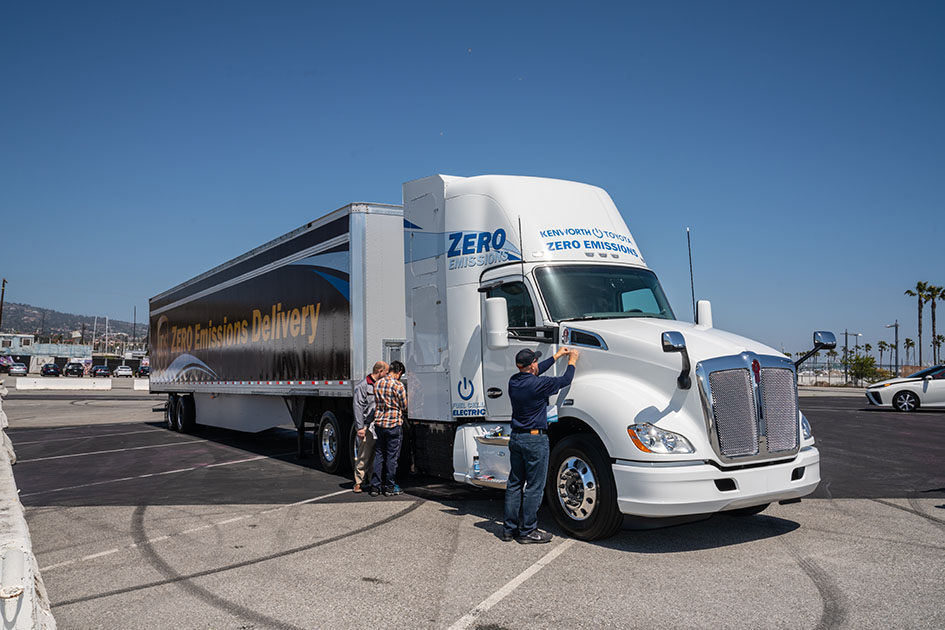California to require zero-emission trucks by 2045
SACRAMENTO, Calif. – Every new truck sold in California will need to be a zero-emission vehicle by 2045, under regulatory changes adopted yesterday by the California Air Resources Board (CARB). The shift from diesel to electric zero-emission offerings is to begin in 2024.
The new rule will see ports and railyards shift to zero-emission shorthaul drayage fleets by 2035, and zero-emission last-mile delivery trucks and vans by 2040.

“We are showing the world that we can move goods, grow our economy and finally dump dirty diesel,” said Jared Blumenfeld, California’s secretary for environmental protection.
Regulators note that low-income and vulnerable communities are located adjacent to ports, railyards, distribution centers, and freight corridors that experience heavy truck traffic.
“For decades, while the automobile has grown cleaner and more efficient, the other half of our transportation system has barely moved the needle on clean air,” said CARB chairwoman Mary Nichols. “Diesel vehicles are the workhorses of the economy, and we need them to be part of the solution to persistent pockets of dirty air in some of our most disadvantaged communities. Now is the time – the technology is here and so is the need for investment.”
The Los Angeles area and San Joaquin Valley experience some of the highest levels of air pollution in the U.S.
Trucks are responsible for 70% of the smog-causing pollution in the state, and 80% of the carcinogenic diesel soot, although they account for just 2 million of the 30 million registered vehicles in the jurisdiction, CARB says.
Allen Schaeffer, executive director of the Diesel Technology Forum, countered that diesel will continue to play a role for decades to come.
“Today, diesel engines using renewable diesel fuel and blends of biodiesel fuels in California are delivering more greenhouse gas benefits than all electric vehicles combined,” he said. “The replacement of older trucks in California with more efficient new diesel models coupled with the use of these biofuels represents a low-cost solution to deliver substantial and immediate greenhouse gas reductions compared to other approaches.”
There could be more regulations to come. CARB is looking to set tighter limits on NOx, and considering a proposal to require the state’s largest fleets to transition to electric trucks year over year.
California is looking to reduce greenhouse gases (GHG) 40% by 2030 and 80% by 2050.
By 2035, zero-emission trucks and chassis will need to account for 55% of Class 2b-3 truck sales, 75% of Class 4-8 straight trucks, and 40% of truck tractor sales. Fleet owners with 50 or more trucks will be required to report about their individual operations, to help identify future strategies.
Have your say
This is a moderated forum. Comments will no longer be published unless they are accompanied by a first and last name and a verifiable email address. (Today's Trucking will not publish or share the email address.) Profane language and content deemed to be libelous, racist, or threatening in nature will not be published under any circumstances.